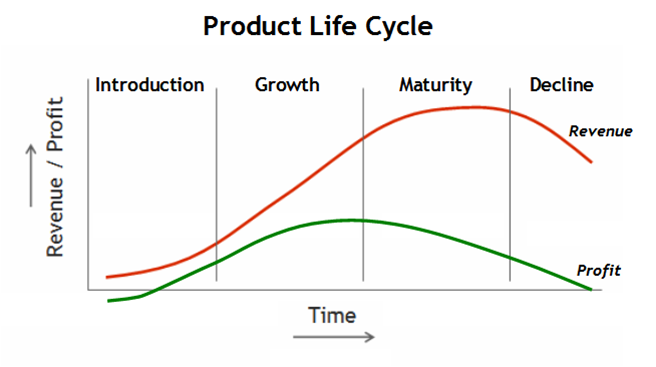Understanding Customer Relationship Management and Relationship Marketing
Customer Relationship Management (CRM) and Relationship Marketing (RM) are foundational concepts in modern business strategies focused on creating loyal customer bases and sustainable growth. Managers increasingly recognize these as essential approaches for businesses dedicated to being customer-focused and customer-centered.
Success in today’s competitive market requires businesses to cultivate deeper connections with their target customers. This includes anticipating customer needs and delivering products or services tailored to satisfy and retain them long-term.
Why Relationship Management is a Business Imperative
Competition is intensifying across industries, pushing companies to innovate not just in product development but also in how they engage customers. Effective relationship management means understanding customers on a personal level by gathering insights through direct interactions, communication, and feedback.
Business units such as sales, marketing, customer support, and account management must collaborate to create seamless experiences that go beyond one-off transactions. This customer-centric approach drives loyalty and positive word-of-mouth, key elements in sustainable business growth.
Key Components of Relationship Marketing and CRM
- Customer engagement: Building ongoing dialogue through personalized communication.
- Customer knowledge: Collecting and analyzing data about customer preferences and behaviors.
- Integrated management: Aligning different departments and touchpoints to deliver a consistent customer experience.
- Technological support: Utilizing CRM systems to automate and enhance interactions.
CRM as an Enabler of Relationship Marketing Strategy
Relationship marketing operates at a strategic level, focusing on long-term customer value. CRM systems translate this strategy into action by streamlining customer interaction processes. They help businesses:
- Manage large volumes of customer data accurately.
- Segment customers to deliver tailored marketing campaigns.
- Track engagement and sales pipelines effectively.
- Provide timely customer service and support.
Thanks to CRM technology providers, international companies can implement standardized customer management practices across different regions, industries, and market niches.
Customizing CRM Solutions for Industry-Specific Needs
Many CRM tools offer customization options and integrations designed to meet the unique requirements of specific sectors, whether retail, finance, hospitality, or professional services. These tailored solutions improve client satisfaction and operational efficiency.
Practical Tips for Maximizing CRM and Relationship Marketing
- Start with clear strategic goals: Define what customer loyalty and engagement mean for your business.
- Integrate CRM across departments: Break silos to ensure marketing, sales, and customer service collaborate.
- Leverage data analytics: Use customer insights to personalize offers and communications.
- Train your teams: Ensure employees understand and embrace relationship marketing principles.
- Continuously review and adapt: Monitor CRM metrics and customer feedback to refine strategies.
Relationship Marketing and CRM: From Concept to Practice
The transformation from traditional transactional business models to relationship-centered businesses is not always straightforward. However, companies that successfully marry RM philosophy with CRM tools enjoy stronger customer positioning and a culture of customer awareness across all levels and departments.
Niche Example: Implementing CRM in Retail
- Personalized promotions: Use purchase history to create targeted discounts and bundles.
- Customer loyalty programs: Reward repeat customers with points or exclusive offers.
- Multi-channel engagement: Coordinate email, SMS, and in-store messaging for consistent communications.
- Feedback collection: Use CRM surveys to improve product and service experience.
Product Life Cycle and Relationship Management
Understanding the product life cycle is important for tailoring relationship marketing efforts and CRM campaigns. For example, promotional activities for a new product launch differ from retention campaigns for mature products.

Implementing Relationship Marketing and CRM: A Step-By-Step Guide
| Step | Description | Example |
|---|---|---|
| 1. Define Customer Segments | Identify key customer groups for targeted engagement. | Segment by demographics, purchase behavior, or value. |
| 2. Set Relationship Goals | Determine objectives like increasing retention or upselling. | Goal: Improve customer retention by 15% over 12 months. |
| 3. Select CRM Tools and Integrations | Choose software that fits your company’s scale and industry. | Implement CRM with marketing automation and analytics modules. |
| 4. Train Teams and Align Departments | Ensure staff understands CRM use and RM philosophy. | Conduct workshops for sales, marketing, and support teams. |
| 5. Deploy Campaigns and Track Metrics | Launch personalized communications and monitor customer responses. | Track open rates, purchase frequency, and customer feedback. |
| 6. Analyze Results and Optimize | Use data insights to refine strategies and improve ROI. | Adjust offer timing based on customer engagement patterns. |
Additional Resources to Enhance Your CRM and Relationship Marketing
- Explore comprehensive strategies to boost customer retention and loyalty with 101 ways to boost customer retention and loyalty.
- Enhance customer personalization efforts using 101 ways to personalize customer experiences.
- Improve your marketing campaigns and gain leverage by reviewing Marketing Promotion Strategy Pack.
Summary: Making Customer Relationship Management Work for You
Effective customer relationship management blends the strategic focus of relationship marketing with the practical tools of CRM technology. By deeply understanding customers and coordinating efforts across business units, companies can foster valuable, long-lasting relationships that drive growth.
Use the step-by-step guide and practical tips above to audit, develop, and optimize your CRM efforts. Tailor your approach to your industry’s needs and leverage available tools for best results. The journey from managing customer data to creating true customer loyalty begins with a commitment to relationship marketing powered by modern CRM systems.
For businesses looking to scale their customer retention and loyalty strategies, Customer Retention & Loyalty Strategy Pack provides proven methods and frameworks designed to accelerate growth and deepen customer engagement.






























